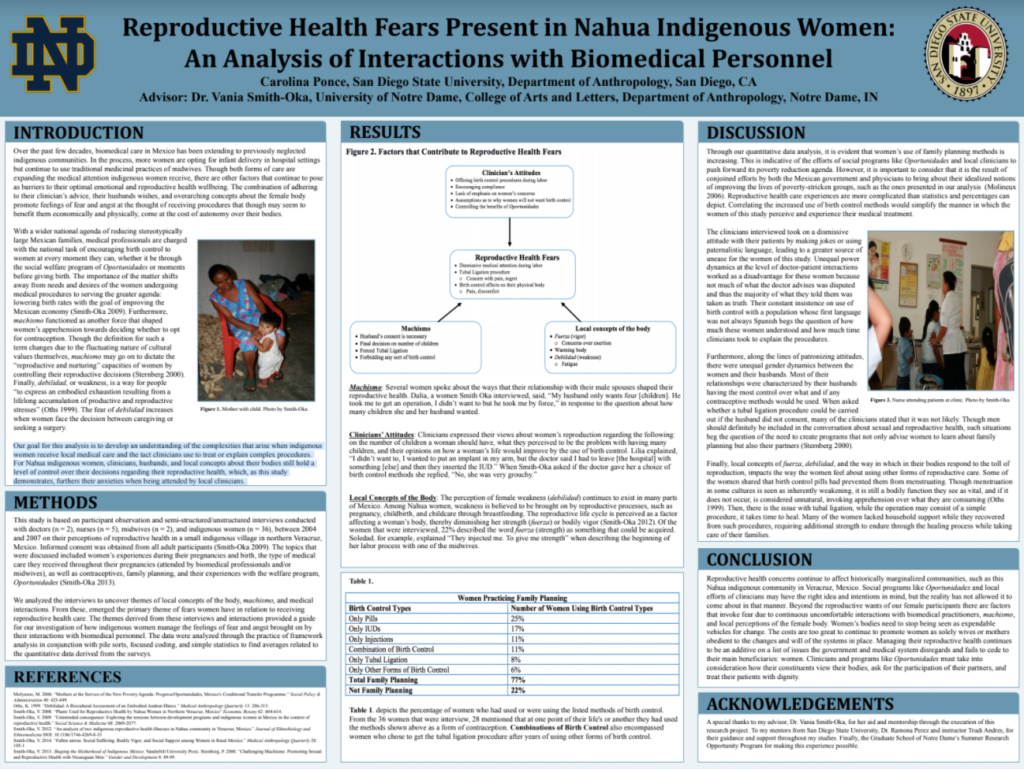Past Student Projects
“They Treated Us Like Chickens”: A Bioethical Approach to the Humanization of Mother and Baby
By Victoria Toledo, Annika Barron, Clare Pryor, and Vania Smith-Oka, Ph.D. (Spring 2022)
Abstract: A study in Mexican healthcare indicates that the hyper-medicalization of childbirth can lead to dehumanization during labor. Previous research on obstetric violence indicates that women can face mistreatment before, during, and even after delivery. Such mistreatment, to obstruct human dignity, strips away inherent, human uniqueness and patient autonomy. An analysis of keywords related to humanity and autonomy in midwife and patient interviews indicate that dehumanization of mothers and babies occurs in medical settings even while midwives attempt to combat these attitudes.
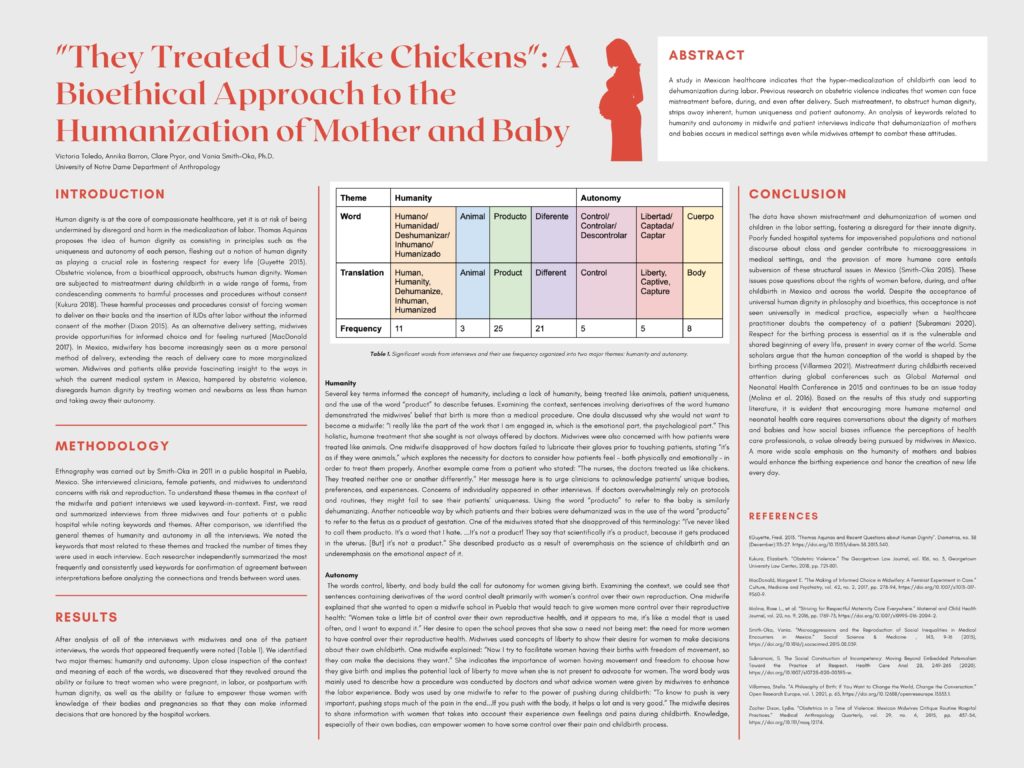
Why Mental Health is a Complicated Conversation for Mexican Doctors: The Social and Material factors that Impact Physician Well-being during Covid-19
By Kwesi Banafo Abbeyquaye, Juliana Couri, Rachel Dinh, Analie Fernandes, Megan Kendall, Vania Smith-Oka, PhD. (Spring 2022)
Abstract: Prior to Covid-19, a multitude of external and environmental stressors shaped the medical practice and mental well-being of doctors in Mexico. However, the pandemic incited drastic changes to medical practices and work environments that all healthcare workers were expected to immediately navigate. This study is an analysis of a survey completed by 52 doctors in Mexico between the months of June and September 2020 consisting of 33 questions about how Covid-19 has affected their personal and professional lives. Initial analysis of the results cultivated the research question, “what factors affect physician well-being and their self evaluation of coping during Covid-19?”. In this poster, we argue that access to supplies, and social support are key factors that influence physician well-being. Furthermore, we suggest that the disconnect between physicians’ negative evaluations of personal well being and positive perceptions of ability to cope relative to their colleagues can be attributed to the social context of Mexico during the pandemic. This project was presented at the 2022 Student Anthropology Research Forum (SARF) at the University of Notre Dame.
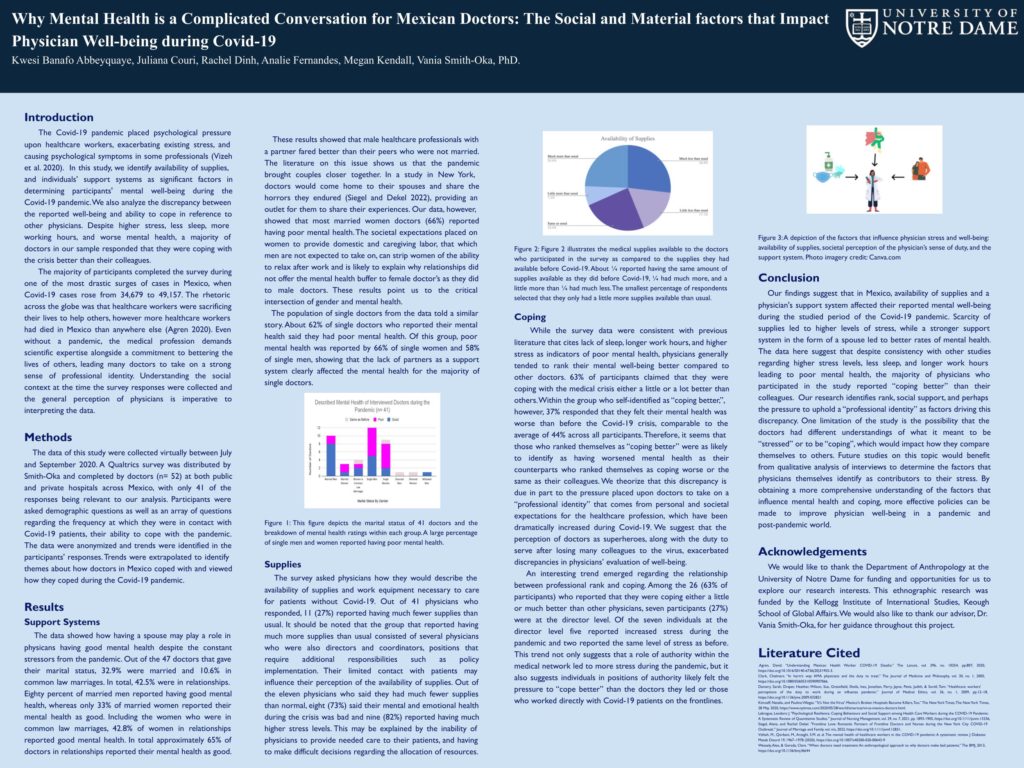
Mentorship and Medicine: Ethnography among Medical Interns in Mexico
By Analie Fernandes, Juliana Couri, Kaitlyn Cox, Rachel Dinh, Teagen Tibbot, Vania Smith-Oka, PhD. (Spring 2021)
Abstract: Mentorship plays an influential role in the personal formation of physicians and the development of medical culture. This ethnographic study examined the role of mentorship and relational experiences for Mexican medical interns working in both private and public hospitals. In analyzing the intern-mentor relationship of Mexican medical interns working in private and public hospitals, it was found that mentor approaches consisted of negative and positive verbal reinforcement, and varied levels of mentor involvement. This project was virtually presented at the Society for Applied Anthropology 2021 national conference.
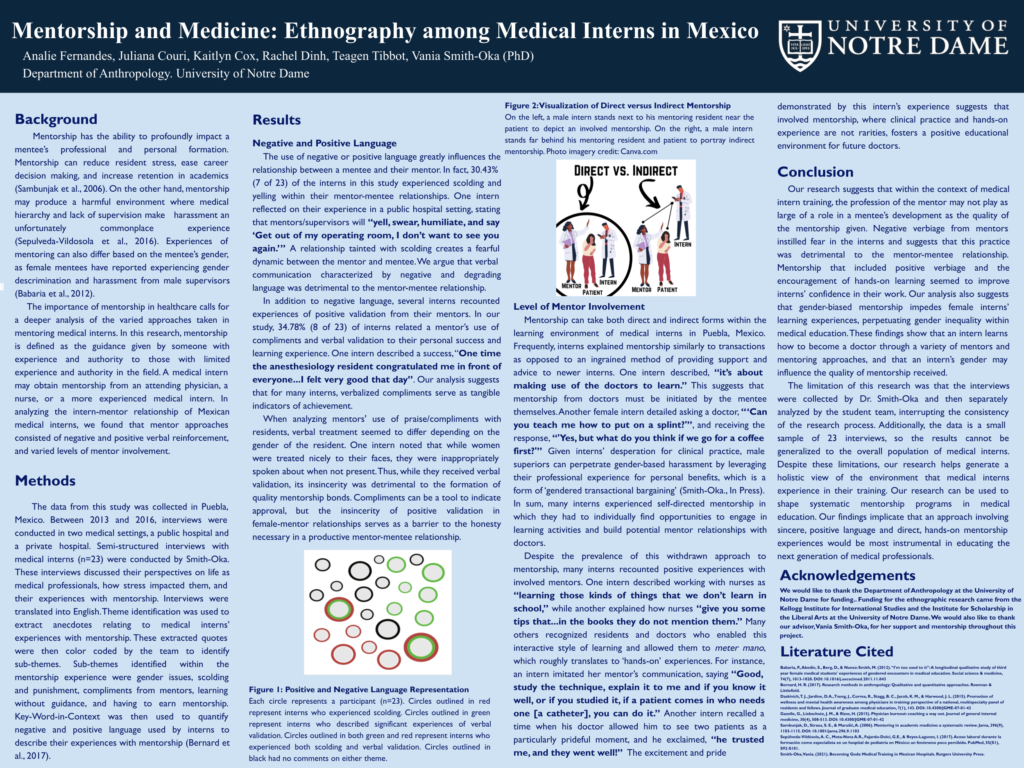
The Mistreatment of Mothers: Investigating the Factors that Create a Negative Care Environment in Kenyan Labor Wards
By Rachel Dinh, Lena Do, Megan Kendall, Vania Smith-Oka, PhD.
Abstract: Given the high rates of maternal mistreatment around the world that threaten the relationship women have with healthcare, this study aimed to understand the overarching factors that contribute to negative birthing experiences in Kenyan hospitals. Qualitative analysis of interviews with Kenyan women on their birth experiences at different hospitals revealed that negative treatment during childbirth results from an atmosphere of uncertainty for laboring mothers, a lack of autonomy, and emotional trauma. This project was virtually presented at the 2021 Student Anthropology Research Forum (SARF) at the University of Notre Dame.
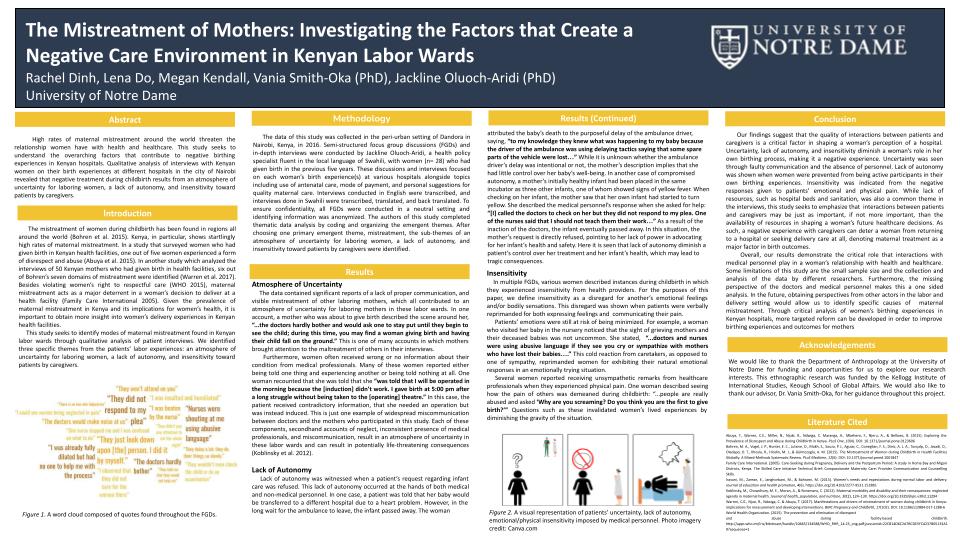
“It scares me”: A qualitative analysis of miscommunication and reproductive health in rural Mexico
By George Timmins, Kaitlyn Cox, Analie Fernandes, Julia Mackessy, Marina Perez-Plazola, Vania Smith-Oka, PhD. (Spring 2019)
Abstract: The relationship between clinicians and their patients in biomedicine has historically been fraught with ineffective communication, power differentials, and ambivalence. This ethnographic study involved the analysis of qualitative data from clinicians, midwives, and women using several qualitative analysis methods. It was found that ineffective communication surrounding family planning services resulted in confusion and fear in women’s reproductive health decision-making. This project was presented at the American Anthropological Association 2020 national conference and the 2020 Human Development Conference.
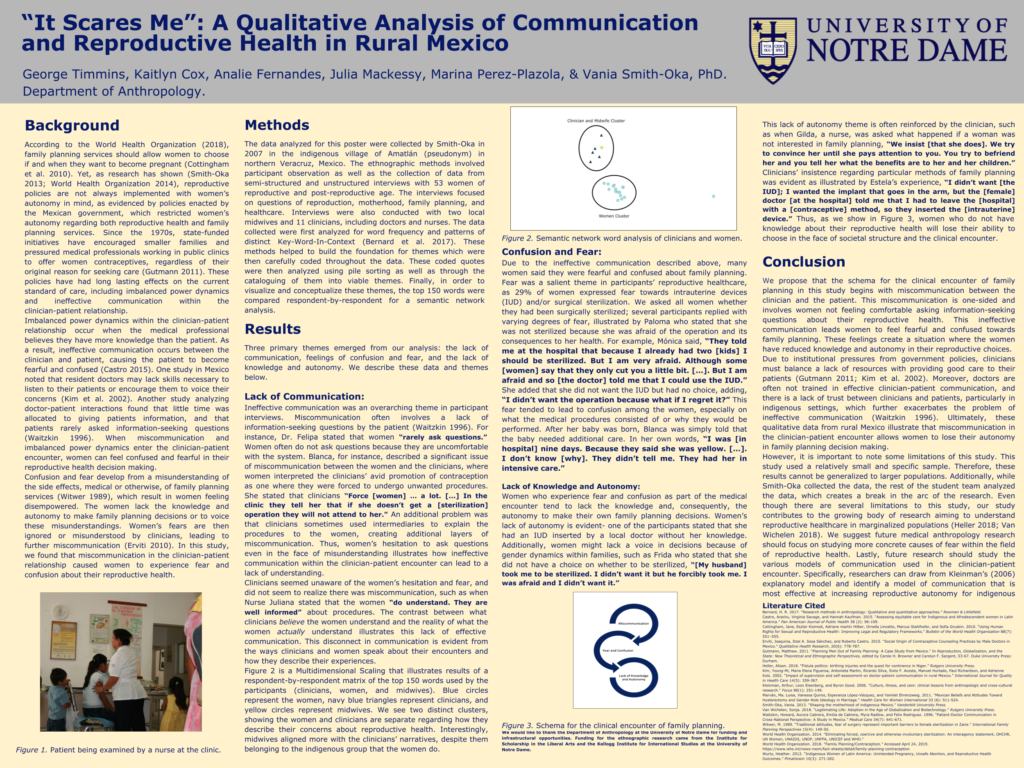
Reproductive Health Fears Present in Nahua Indigenous Women: An Analysis of Interactions with Biomedical Personnel
By Carolina Ponce, Vania Smith-Oka, PhD. (Summer 2018)
Abstract: Despite increasing access to biomedical care and traditional medicinal care, indigenous women in Mexico still face barriers to their optimal emotional and reproductive health wellbeing. The goal for this analysis was to develop an understanding of the complexities that arise when indigenous women receive local medical care and the tact clinicians use to treat or explain complex procedures. For Nahua indigenous women, clinicians, husbands, and local concepts about their bodies still hold a level of control over their decisions regarding their reproductive health, which, as this study demonstrates, furthers their anxieties when being attended by local clinicians.
